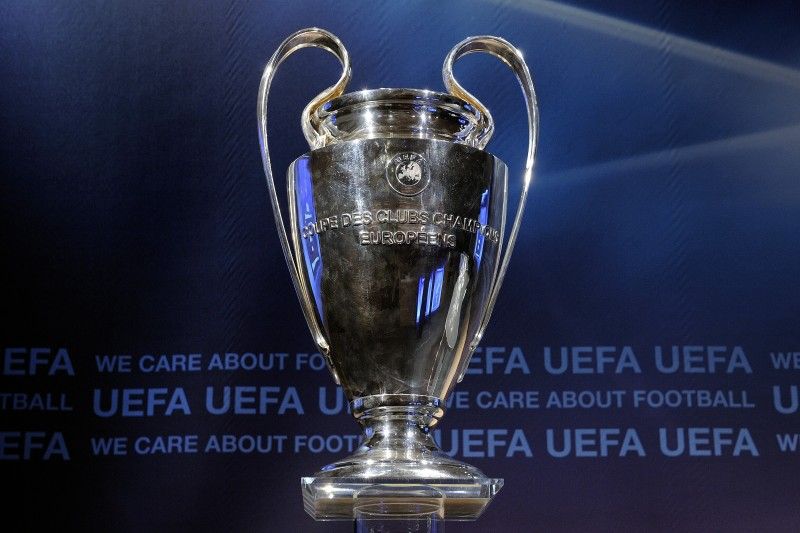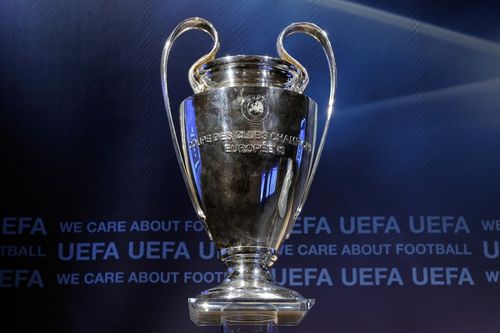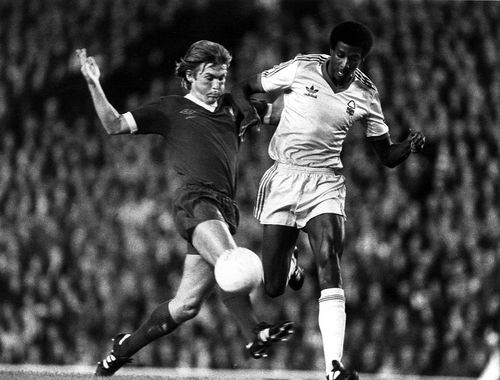
10 memorable matches involving British clubs in European Cup history

British clubs have been involved in some memorable matches in Europe, and some of the most remembered matches in European football history involves clubs from England and Scotland.
From Hibernian becoming the first British club to play in the European Cup, to Nottingham Forest’s storied run in the competition to Manchester United’s last-minute heroics in 1999, here are 10 of the most memorable Champions League matches and the stories of those clubs in the European Cup in those seasons:
1955: Hibernian vs Rot Weiss Essen

Edinburgh team Hibernian, known more popularly as Hibs, became the first British football club to compete in the European Cup. English sides declined to enter the inaugural contest, but there was more interest north of the border.
However, reigning Scottish Champions Aberdeen did not enter. Hibs were selected partly because of their reputation for flowing football, but more importantly due to the fact that they were one of a handful of British teams to then have floodlights; European matches were generally played in the evening.
The first round opponents were West German Champions Rot Weiss Essen. The Scots crushed the Germans 5-1 on aggregate. Their next opponents were Swedish club Djurgarden IF who they easily beat 4-1 over two legs.
Hibs’ run finally came to an end in the semis against Reims who went on to lose the opening European Cup Final against Real Madrid. This would be Hibernian’s last foray into the competition, though they did claim the notable scalp of Barcelona in the 1960/61 Fairs Cup Final.
The following year Manchester United became the first team to represent the English League. They also progressed to the semi-finals, but were beaten by Real Madrid. British involvement in the fledgling European Cup was still beset by snobbery towards foreign football.
During the 1950’s there was a growing realisation that England and Scotland were not the only powers in the World Football. Both countries had made disappointing debuts in the World Cup, and it was clear that they were falling behind the likes of Hungary, Uruguay, and Brazil.
For the first decade no UK club managed to reach the final. Hibs, Spurs, Dundee, and Liverpool all made the semis once, and Manchester United narrowly missed out on the final three times. Gradually clubs began to adapt to the differing style of Continental football, and it was Celtic who became the first to reach a European Cup final in 1967.
1967: Celtic vs Inter Milan

Celtic’s first ever run in the Cup, would prove to be their most successful. After beating Dukla Prague in the semis, Celtic faced Inter Milan. The Italians had knocked out reigning champions Real Madrid in the quarter-finals, and went into the final as strong favourites.
Inter played a typically Italian brand of defensive football, but the underdogs were quietly confident. Their manager Jock Stein had assembled a team of locals (every player was born within 30 miles of Parkhead), who knew each others’ games inside out. Although star striker Joe McBride was missing, Celtic still felt their attacking ethos could overturn even the most defensive of teams.
Just six minutes into the match, Inter were awarded a penalty, which Sandro Mazzola converted; it was their only shot on goal. The Glaswegians then had a seemingly fair goal disallowed by the referee, and two decent penalty calls turned down. Nevertheless Celtic refused to panic, and instead kept faith in their creative game.
Just after the hour-mark the Scots finally broke down the efficient Italian defence, with Tommy Gemmell blasting the ball through the keeper’s hands. Celtic continued to push forward, and Steve Chalmers grasped the winner six minutes from time, much to the delight of the Lisbon crowd who had been won over by Celtic’s beautiful.
The Scottish side became the first team from Northern Europe to be crowned Champions of Europe, and the eleven players that day were immortalised as the ‘Lisbon Lions’.
1968: Manchester United vs Benfica

The year following Celtic’s triumph, Manchester United became the first English club to reach the European final. Man United did have the benefit of effectively playing at home, as the match was played at Wembley. It was a classic United starting eleven with such household names as George Best, Bobby Charlton, and Nobby Stiles on the team-sheet, though Dennis Law was injured.
The most famous player in the Benfica squad was Eusebio, the Black Panther, who had so impressed at the World Cup in England two years earlier. The Benfica team was made up entirely of Portuguese citizens, whilst United’s starting eleven was composed of players from the British Isles.
The first half passed largely without incident, but early in the second, Charlton put the Red Devils in front. Benfica scored as equaliser through Jaime Graca with twenty minutes to go, to set the Wembley crowd on edge.
During the first ninety minutes there was little between the two teams, yet once extra time began, Man United began to dominate. Charlton bagged another goal, before Best and Brian Kidd secured the cup for Man United. It had been a long journey for the Manchester club following the Munich Air Disaster a decade before.
Though ironically, having captured the European Cup, the club went into decline. The next quarter of a century would be one of consistent under-achievement.
1970: Celtic vs Leeds

This was the first time the champions of England and Scotland had met in Europe. The media, on both sides of the border, hyped up the ‘Battle of Britain’. The English press seemed utterly convinced that Leeds would ease through the tie, despite Celtic’s European pedigree. However Don Revie’s men lost the opening leg at Elland Road nil-one through a first minute goal from George Connelly.
Celtic elected to play the corresponding fixture at Hampden Park, Scotland’s international stadium. Such was the interest that even thousands of supporters of Celtic’s arch-rivals Rangers bought tickets to cheer on the men in green and white. The extraordinary attendance of 136,505 remains a European club record, and since there is currently no stadium on the continent with a larger capacity, it will probably remain a record for the foreseeable future.
Leeds faced an uphill struggle, though their most expensive player, Allan Clarke, cost £165,000, over three times the paper value of the entire Celtic team. The Yorkshire team were clearly fired up for the match, and they started the better with Scotsman Billy Bremner, a childhood Celtic fan, temporarily silencing the mammoth crowd by scoring for Leeds early on.
Even that fine goal could not hold Celtic back. Early in the second half John Hughes and Bobby Murdoch settled the tie in Celtic’s favour with a goal apiece. Though the star of the show was the irrepressible Jimmy ‘Jinky’ Johnstone who ran the Leeds defence a merry dance all night.
Celtic was expected to win the final, but the tag of favourites did not suit the Bhoys, and they were defeated 2-1 by Feyenoord. It was the last time a Scottish team would reach just exalted heights. For Leeds it was the worst defeat in their history.
1978: Nottingham Forest vs Liverpool

Today the meeting of English clubs in Europe is a common occurrence. Yet before the introduction of the Champions League format in which, ironically, non-Champions could now compete, such meetings were extremely rare. In fact this was the first fixture between two English clubs in the European Cup.
Liverpool, the reigning champions of Europe, took on Nottingham Forest who’d won their only league title the previous season. Manager Brian Clough was at the peak of his career, and there was no one his team feared. Clough, probably the most revered English manager of all time, had earned his reputation at nearby Derby County, where he had guided the Rams to the English League title.
His Forest players were still the underdogs, as Liverpool had already amassed two of their five European Cups. The first leg was played at Forest’s City Ground, and it proved to be the decisive match. Garry Birtles opened the scoring midway through the first half, and then played a part in Colin Barrett’s second.
In the return leg, Liverpool just couldn’t find a way through the Forest defence despite the partisan backing of the Anfield crowd. Forest got all the way to the final that year beating Malmo to become the smallest team ever to triumph in Europe.
The following season they retained the European Cup, becoming the only side to have been crowned champions of Europe more times than they won their domestic league.